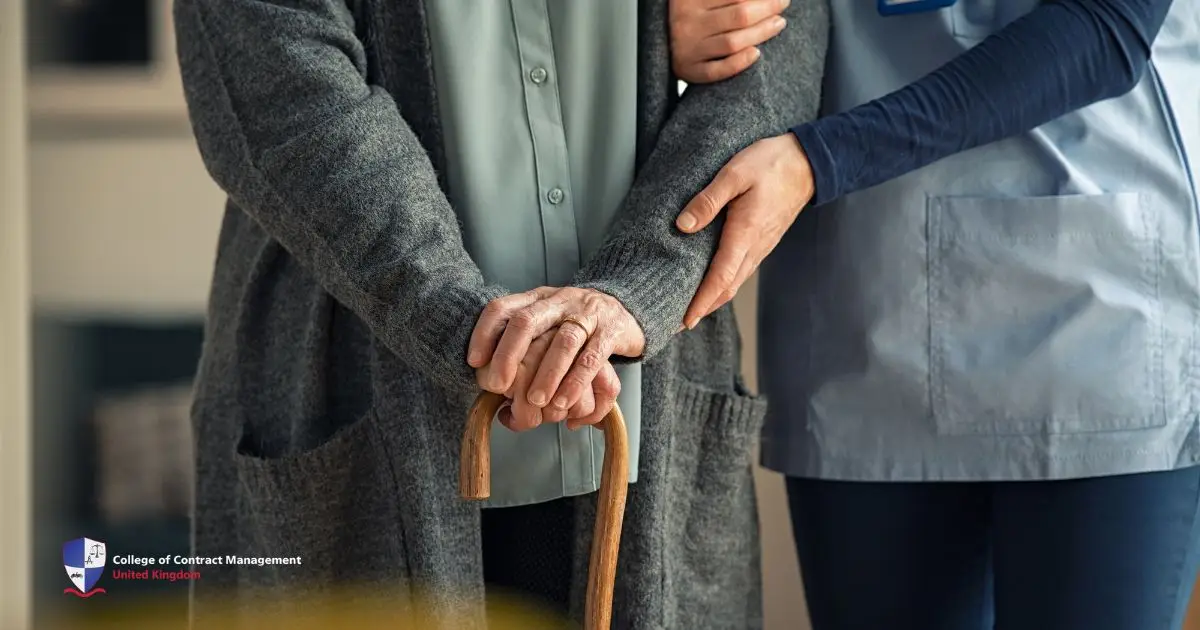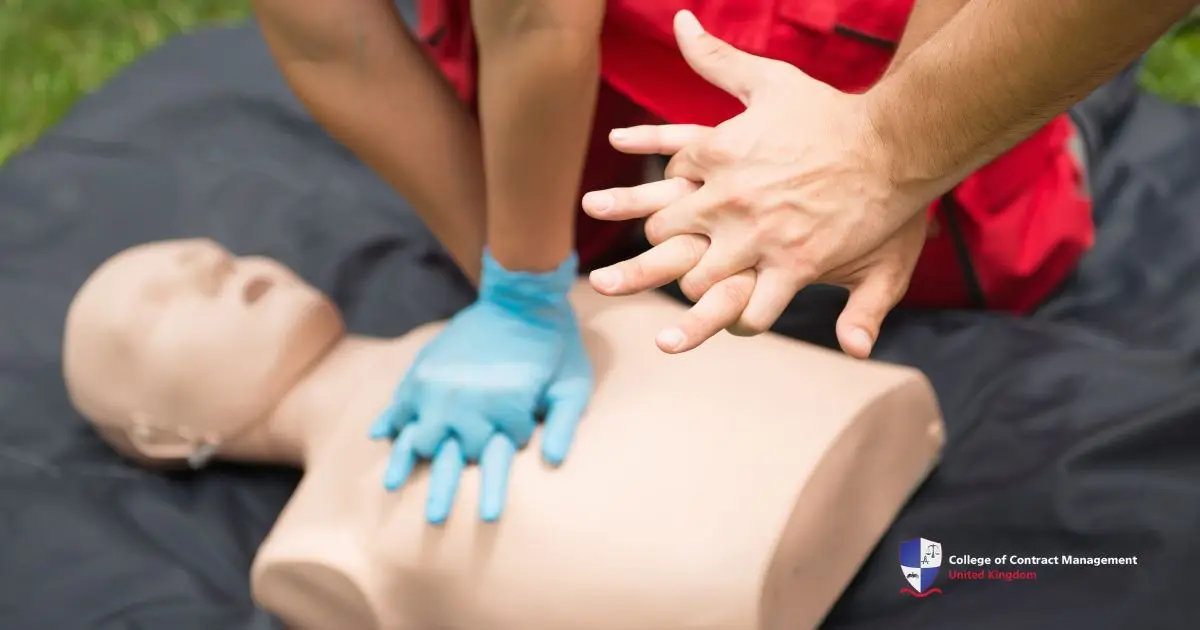The UK has a rising demand for health and social care workers and adult care. This has opened up new job opportunities and highlighted the importance of having specific skills. So, if you're considering starting a career in this fulfilling field. For this reason, it's crucial to learn the right Care skills. So you can provide quality and compassionate support to people of all ages.
As more older adults need assistance, improving care for older people is becoming more important. As a result, there is a need for well-trained adult care providers. For this reason, various courses have emerged that can help you gain the skills required in this field.
What are Care Skills?
Care skills are essential for anyone supporting others in hospitals, as well as care homes and community centres. For this reason, technical knowledge and skills like communication, empathy, and patience play a crucial role. This is because it offers quality care and builds trust with those in need.
In the UK, it is a helpful resource for anyone looking to develop or strengthen their health and social care abilities. So, with a range of training options and practical resources, it's a great way to gain the knowledge and confidence to provide compassionate, effective support in various care settings.
Care skills and its importance in care sectors
In health and adult care, strong care skills make all the difference. From helping with daily needs to offering emotional support, these skills allow caregivers to build trust and create a safe, comforting environment. With these skills, professionals can make a positive impact, providing more than just assistance—they offer genuine connection and support.
Health and Social Care
Health and social care professionals depend on care skills to ensure the safety, comfort, and dignity of those they serve. As a result, these skills are essential, as they directly influence the quality of care provided. The UK offers a wealth of information and resources in this field. For this reason, it helps aspiring care workers grasp the fundamentals of adult care and guides them toward more specialized areas within health and social care.
- Enhance Quality of Life: It helps ensure individuals' safety, comfort, and dignity. As a result, it promotes a higher quality of life for those receiving support.
- Build Trust and Communication: Effective communication and active listening are vital in building patient trust and understanding. For this reason, care skills make patients feel valued and respected.
- Support Emotional Well-Being: Empathy and patience are essential for understanding and supporting the emotional needs of individuals, helping them feel cared for and less isolated.
- Promote Safety and Efficiency: Strong technical skills and knowledge help care providers perform their duties safely and efficiently, reducing risks for patients.
- Encourage Professional Development: Developing specialized skills in this field allows professionals to grow in their roles. It also provides a foundation for career advancement in health and social care.
Care skills make people feel safe, respected, and truly cared for. They improve quality of life, build trust, and help people feel less alone. For care workers, these skills not only make a difference but also open doors to growth in their careers.
Adult Care
Adult care is all about helping elderly people and those with disabilities. Because of this, care skills offer training for professionals working in this field. Additionally, it also teaches important skills like how to assist with mobility, support mental health, and care for individuals with dementia. These skills are essential to ensure that everyone who needs care receives kind, respectful, and practical support.
Caregivers play an important role in adult care. For this reason, they need practical skills as well as emotional support to create a warm and caring environment. It offers helpful training and resources to boost caregivers' skills. So, with this guidance, they can provide caring, personalized support to adults who need help.
Relevant courses that you can take
Training for care skills helps you prepare for different jobs in adult and health and social care. For this reason, these courses teach important skills and information to succeed in this field. Whether you're just starting or looking to advance in your career, there are programs that can work for you. Here's a look at some popular options you can choose from.
1. Basic Care Skills
Basic care skills are essential in health and social care. Courses focus on key abilities like personal care, safe lifting and handling, and basic first aid. For this reason, these skills are vital for anyone aiming to work in adult care, as they ensure the well-being and safety of those receiving care, significantly impacting their lives.
2. Advanced Health and Social Care Courses
If you're interested in gaining specialized skills in this field, there are advanced courses on dementia care, palliative care, and mental health support. These skills are really important in health and social care because they help you understand complex conditions and provide the right support to those in need.
3. Communication and Interpersonal skills
Good communication is a really important aspect of care skills. So, taking communication courses helps caregivers connect better with patients, their families, and coworkers. As a result, this leads to a better experience for everyone involved.
4. Safeguarding and Risk assessment
A Safeguarding and Risk Assessment course is vital for anyone in care, as it helps caregivers identify and manage risks while protecting those they support. With this care skill, caregivers can respond confidently to challenges
5. Health and Safety Training
Health and safety management is important for everyone in health and social care. This training helps caregivers ensure that they and the people they care for stay safe. Some main topics include how to control infections, what to do in emergencies, and how to prevent accidents.
Career Paths: Health and Social Care vs. Adult Care
If you want to work on your care skills, both Health and Social Care and Adult Care offer rewarding paths. Whether you're drawn to supporting people of all ages or focusing on seniors, these fields let you make a real difference in people's daily lives.
Health and Social Care
- Wide Variety of Jobs: Roles like nursing, mental health support, and social work.
- All Ages: You work with people of all ages, from kids to seniors.
- Different Workplaces: Hospitals, schools, community centres.
- Many Options: You could specialize in mental health, rehabilitation, or public health.
- Room to Grow: Plenty of opportunities to move up into management, policy work, or specialized healthcare areas where you'll benefit from the knowledge you've learned from care skills.
Adult Care
- Focused on Older Adults: Mainly helping seniors or those with disabilities.
- Daily Support: You're helping with day-to-day needs like meals, mobility, and personal care.
- Where You Work: Places like care homes, adult day centres, or directly in people's homes.
- Hands-On Roles: Jobs include care assistants, support workers, or coordinators.
- Flexible Hours: Great for part-time work, and you can specialize in areas like dementia care.
Quick Difference:
Health and Social Care gives you many options, working with all ages to improve their health and well-being. Adult Care is more hands-on, focused on helping seniors with their daily needs.
Advancing your healthcare career through training
Having strong caregiving skills is important for success in the health and social care field. Learning care skills highlights that hands-on training helps people feel more confident and develop the skills they need to work well in adult care. So, here are some reasons why taking skills training is beneficial:
- Enhance employability: Taking courses from trusted providers can improve your job prospects. For this reason, it can show that you're dedicated to providing quality care.
- Confidence in providing care: With the right skills, individuals feel more confident and capable in their roles, benefiting the well-being of those they care for.
- Adaptability in various settings: Health and social care workers often find themselves in different places. This includes people's homes or hospitals. Thus, having a broad set of care skills helps them adapt easily to any setting they encounter.
- Care advancement opportunities: For those already in the field, developing advanced skills opens the door to senior roles in this field. These roles include care managers or specialized care providers.
These skills in the UK provide resources to help newcomers build these core competencies and explore specialized areas within adult care.
Conclusion
Building strong care skills is key to a successful health and social care career. The UK is a great resource that offers training and support for anyone interested in working with adults and in health and social care. It offers easy-to-follow courses to help you gain the skills and confidence to provide quality care. As a result, it helps make a real difference in people's lives.
The College of Contract Management has several courses available to learn new skills. You can find options not just in health and social care but also in business management and web design. Taking courses in care skills and other areas is a great way to boost your career, stay flexible, and discover new job opportunities in the ever-changing world of health and social care.





